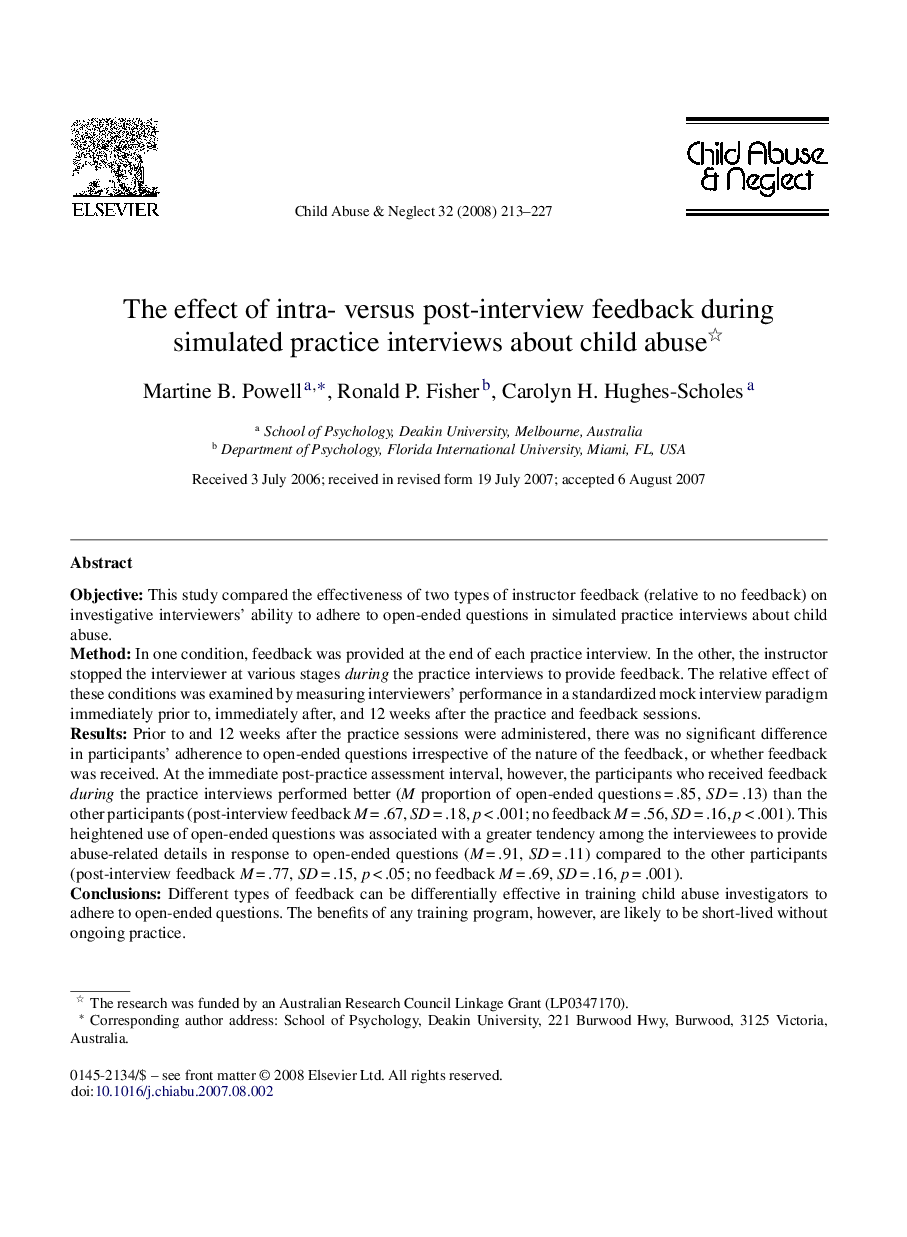| Article ID | Journal | Published Year | Pages | File Type |
|---|---|---|---|---|
| 345421 | Child Abuse & Neglect | 2008 | 15 Pages |
ObjectiveThis study compared the effectiveness of two types of instructor feedback (relative to no feedback) on investigative interviewers’ ability to adhere to open-ended questions in simulated practice interviews about child abuse.MethodIn one condition, feedback was provided at the end of each practice interview. In the other, the instructor stopped the interviewer at various stages during the practice interviews to provide feedback. The relative effect of these conditions was examined by measuring interviewers’ performance in a standardized mock interview paradigm immediately prior to, immediately after, and 12 weeks after the practice and feedback sessions.ResultsPrior to and 12 weeks after the practice sessions were administered, there was no significant difference in participants’ adherence to open-ended questions irrespective of the nature of the feedback, or whether feedback was received. At the immediate post-practice assessment interval, however, the participants who received feedback during the practice interviews performed better (M proportion of open-ended questions = .85, SD = .13) than the other participants (post-interview feedback M = .67, SD = .18, p < .001; no feedback M = .56, SD = .16, p < .001). This heightened use of open-ended questions was associated with a greater tendency among the interviewees to provide abuse-related details in response to open-ended questions (M = .91, SD = .11) compared to the other participants (post-interview feedback M = .77, SD = .15, p < .05; no feedback M = .69, SD = .16, p = .001).ConclusionsDifferent types of feedback can be differentially effective in training child abuse investigators to adhere to open-ended questions. The benefits of any training program, however, are likely to be short-lived without ongoing practice.Practice implicationsA single study compared the relative effectiveness of two types of instructor feedback (relative to no feedback) on investigative interviewers’ ability to adhere to open-ended questions in simulated practice interviews about child abuse. This research is relevant to trainers of investigative interviewers because there is currently large variability in the type of feedback employed in training programs. This study is one of the first to empirically demonstrate that different types of feedback may be differentially effective in improving the performance of investigative interviewers.
